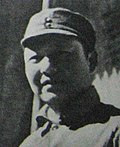Political office in the People's Republic of China
| Secretary-General of the State Council of the People's Republic of China | |
|---|---|
| 中华人民共和国国务院秘书长 | |
 Emblem of the People's Republic of China | |
since 12 March 2023 | |
| General Office of the State Council | |
| Status | Provincial and ministerial-level official |
| Member of | |
| Seat | Beijing |
| Appointer | President with the confirmation of the National People's Congress or its Standing Committee |
| Term length | Five years, renewable |
| Inaugural holder | Li Weihan |
| Formation | 19 October 1949;76 years ago (1949-10-19) |
| Secretary-General of the State Council | |||||||
|---|---|---|---|---|---|---|---|
| Simplified Chinese | 中华人民共和国国务院秘书长 | ||||||
| Traditional Chinese | 中華人民共和國國務院秘書長 | ||||||
| |||||||
| Officially abbreviated as | |||||||
| Simplified Chinese | 国务院秘书长 | ||||||
| Traditional Chinese | 國務院秘書長 | ||||||
| |||||||
The Secretary-General of the State Council is an executive position within the State Council of the People's Republic of China. The secretary-general also leads the General Office of the State Council. The office ranks below the premier and above the ministers of various ministries and departments. The equivalent position in other political systems is the cabinet secretary.
Contents
The current secretary-general is Wu Zhenglong, who has been serving in the position since 12 March 2023. The officeholder is supported by a few deputy Secretaries-general of the State Council.







